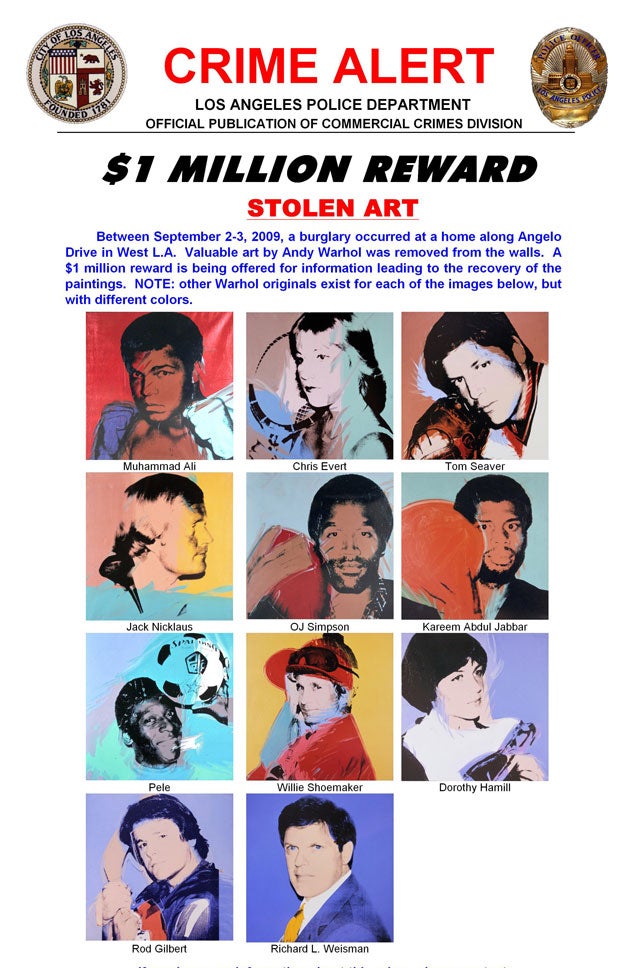Your support helps us to tell the story
From reproductive rights to climate change to Big Tech, The Independent is on the ground when the story is developing. Whether it's investigating the financials of Elon Musk's pro-Trump PAC or producing our latest documentary, 'The A Word', which shines a light on the American women fighting for reproductive rights, we know how important it is to parse out the facts from the messaging.
At such a critical moment in US history, we need reporters on the ground. Your donation allows us to keep sending journalists to speak to both sides of the story.
The Independent is trusted by Americans across the entire political spectrum. And unlike many other quality news outlets, we choose not to lock Americans out of our reporting and analysis with paywalls. We believe quality journalism should be available to everyone, paid for by those who can afford it.
Your support makes all the difference.Some called it the perfect crime. Others compared it to The Thomas Crown Affair. Now police have a new way to describe the recent art heist that saw a multimillion- dollar collection of Andy Warhols stolen from a prominent Los Angeles art collector: fishy.
A month after thieves allegedly broke into the mansion of the philanthropist Richard Weisman, spiriting away valuable modern paintings, detectives have named a new person of interest to their ongoing investigation: the supposed victim.
News that they were seeking to interview Mr Weisman, a wealthy investment banker, came as he admitted taking the bizarre decision to waive an insurance policy that had been taken out against the 11 stolen Warhols. The move means he will forfeit $25m (£15m) that he was due to be compensated for the theft. But it will also prevent insurance investigators from digging into personal records and interviewing family and friends about the circumstances of the mysterious incident.
Mr Weisman claims that he would find such an investigation embarrassing and inconvenient, telling reporters that his insurance company's loss adjusters would inevitably ask awkward questions about whether the heist was staged as part of an elaborate insurance fraud. "They turn you into a suspect. I just finally told them, 'I'm not going to go through it for three to five years. Forget it'," he told The Seattle Times. "That's the only reason, and it's a good enough reason."
Mr Weisman, who strongly denies any fraud, claims he is wealthy enough to be able to withstand the financial loss from the abandoned insurance claim. Chartis, his insurance firm, has withdrawn a $1m reward it had offered for the safe return of the paintings.
To a casual observer, however, the move raises a simple question: if Mr Weisman wasn't prepared to claim for the stolen paintings in the event of their theft, why on earth did he bother insuring them in the first place?
"It is curious," declared Mark Sommer, an investigator who heads up the specialist art theft unit at the LA Police Department, in what the Los Angeles Times described as a "deadpan" voice last week. "We'd like to talk to him about it."
When the heist was reported, in mid-September, it stunned the art world because of its apparent audacity, and the distinctive nature of the work. The 11 Warhols included 10 silkscreen paintings of sports stars – among them Pele, Muhammad Ali, and Jack Nicklaus – plus a portrait of Mr Weisman that the collector had commissioned himself in 1977. Strangely, the thieves left dozens more valuable works of art hanging on the walls, and left not a shred of evidence. "This was a very clean crime. For some reason, they had an interest in this collection," said Mr Sommer at the time.
The latest curious development marks the second time in recent weeks that California police have seen an inquiry into a major art theft take an unexpected turn. A week ago, investigators looking into the disappearance of an $80m collection of Van Gogh, Matisse, Pollock and Rembrandts from a rented home in Pebble Beach told reporters that "this whole thing stinks", after the alleged victims failed to prove that the "stolen" art had ever existed.

Join our commenting forum
Join thought-provoking conversations, follow other Independent readers and see their replies
Comments